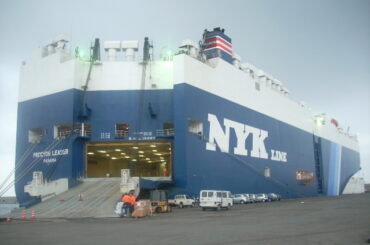If you’ve ever wondered how businesses optimize their shipping processes to save costs and improve efficiency, understanding what groupage in shipping entails is essential. This method may seem straightforward at first glance, but there are intricacies and benefits that might surprise you. Intrigued to learn more about how groupage could revolutionize your logistics strategy and drive savings for your shipments?
Definition of Groupage Shipping
Groupage shipping, also known as consolidated cargo or LCL (Less than Container Load), refers to a logistics method where multiple smaller shipments from different customers are consolidated into a single container for transportation.
This approach offers several benefits, including cost-effectiveness due to sharing container space and reduced carbon emissions from optimized routes. Groupage also allows for more flexibility in shipping smaller quantities and reduces the risk of damage during transit by minimizing handling.
However, there are challenges associated with groupage shipping. One of the main issues is the potential for delays, as coordinating multiple shipments can lead to longer transit times compared to direct shipping methods.
Additionally, tracking individual packages within a consolidated container can be more complex, increasing the risk of errors or misplaced items.
Despite these challenges, groupage shipping remains a popular choice for companies looking to optimize costs and reduce their environmental impact while still ensuring efficient transportation of goods.
How Groupage Works
Consolidating multiple smaller shipments from various customers into a single container is the fundamental concept behind how groupage shipping operates. This cargo consolidation process allows different shipments heading in the same direction to be combined, optimizing container space and reducing costs.
The groupage process typically begins with individual shipments being collected from different shippers. These shipments are then brought to a consolidation warehouse where they’re sorted, organized, and loaded into a single container bound for the same destination.
This method of combining smaller shipments isn’t only cost-effective but also environmentally friendly, as it reduces the overall carbon footprint associated with shipping multiple smaller loads separately. Additionally, groupage shipping offers a more sustainable solution by maximizing container space and minimizing empty space within containers.
Advantages of Groupage
Optimizing shipping efficiency is essential for businesses seeking cost-effective and sustainable solutions for transporting goods.
Groupage offers several advantages that can benefit your shipping operations. One key advantage is cost efficiency. By consolidating multiple smaller shipments into one larger container, you can greatly reduce shipping costs per unit. This is especially beneficial for small to medium-sized businesses looking to save on transportation expenses.
Another advantage of groupage is logistical flexibility. With groupage, you have the flexibility to ship smaller quantities of goods more frequently, allowing for better inventory management and quicker response to market demands.
This flexibility also enables you to reach multiple destinations efficiently, making groupage a versatile shipping option for businesses with diverse distribution needs.
Groupage vs. Full Container Shipping
When considering your shipping options, comparing groupage with full container shipping can help you determine the most cost-effective and efficient solution for your business needs.
- Container Sizes:
- Groupage: Involves sharing space in a container with other shipments, suitable for smaller loads.
- Full Container Shipping: Entire container space is utilized, ideal for larger shipments or when you need exclusive use of a container.
- Cost Comparisons:
- Groupage: Cost-effective for smaller shipments as you only pay for the space you use.
- Full Container Shipping: Can be more cost-efficient for larger volumes, as you’re charged a flat rate for the entire container regardless of the volume shipped.
When deciding between groupage and full container shipping, consider the size of your shipment and your budget.
If you have a smaller load or don’t need an entire container, groupage may be the better choice.
However, for larger volumes or exclusive use of a container, full container shipping could be more economical.
Take into account your specific requirements and compare quotes to make an informed decision.
Factors to Consider in Groupage
Efficiency plays an essential role in the success of groupage shipping. When evaluating groupage for your shipments, two key factors to keep in mind are cost efficiency and shipment consolidation.
Cost efficiency is significant in groupage as it allows multiple small shipments from different customers to be combined into one container, reducing individual shipping costs. This shared cost model benefits all parties involved, making groupage a cost-effective option for transporting smaller loads.
Shipment consolidation is another important factor to assess in groupage. By consolidating multiple smaller shipments into one container, you maximize space utilization, reduce the number of shipments, and minimize the overall carbon footprint of transportation.
This consolidation simplifies the logistics process, streamlines handling, and decreases the risk of errors during transit. Additionally, it offers a more sustainable approach to shipping by optimizing resources and reducing unnecessary waste.
When choosing groupage, prioritizing cost efficiency and shipment consolidation can lead to a more streamlined and environmentally friendly shipping process.
Choosing Groupage for Your Shipments
Considering groupage for your shipments can greatly benefit your logistics operations.
Opting for groupage offers cost efficiency and shipment flexibility, making it an attractive choice for businesses of various sizes. Here are some key points to help you decide if groupage is the right option for your shipments:
- Cost Efficiency: Groupage allows you to share container space with other shipments, helping you save on transportation costs.
- Shipment Flexibility: With groupage, you have the flexibility to send out smaller shipments more frequently, which can be advantageous for businesses with varying shipping needs.
- Reduced Carbon Footprint: By sharing container space, groupage can help lower the environmental impact of your shipments.
- Access to Diverse Markets: Groupage enables you to reach a broader range of markets by combining your cargo with other shipments heading to different destinations.
Frequently Asked Questions
Can I Track My Goods Individually in Groupage Shipping?
Yes, you can track your goods individually in groupage shipping. This option provides shipment visibility and tracking options for each item. It guarantees you can monitor your items throughout their journey, offering peace of mind and control.
What Happens if My Items Get Damaged in a Groupage Shipment?
If your items sustain damage during groupage shipping, you may have damage liability. Guarantee to document the damage thoroughly and report it promptly. Contact your shipping provider to initiate the claims process for potential compensation.
Are There Restrictions on the Types of Goods Suitable for Groupage?
When shipping goods via groupage, there are limitations on suitable products. Confirm your items comply with size, weight, and hazardous material restrictions. Understanding groupage limitations helps prevent delays and confirms smooth transportation of your cargo.
How Are Customs Procedures Handled in Groupage Shipping?
When shipping goods through groupage, customs procedures are streamlined. You submit customs documentation for your items. Groupage regulations guarantee efficient clearance. Trust in the process; your shipment will navigate customs smoothly, saving time and hassle.
Is Insurance Included in Groupage Shipping Costs?
Insurance coverage is typically not included in groupage shipping costs. It’s recommended to inquire about groupage policies to understand coverage options. Consider additional insurance for valuable items. Guarantee clarity on insurance terms before finalizing shipping arrangements.







